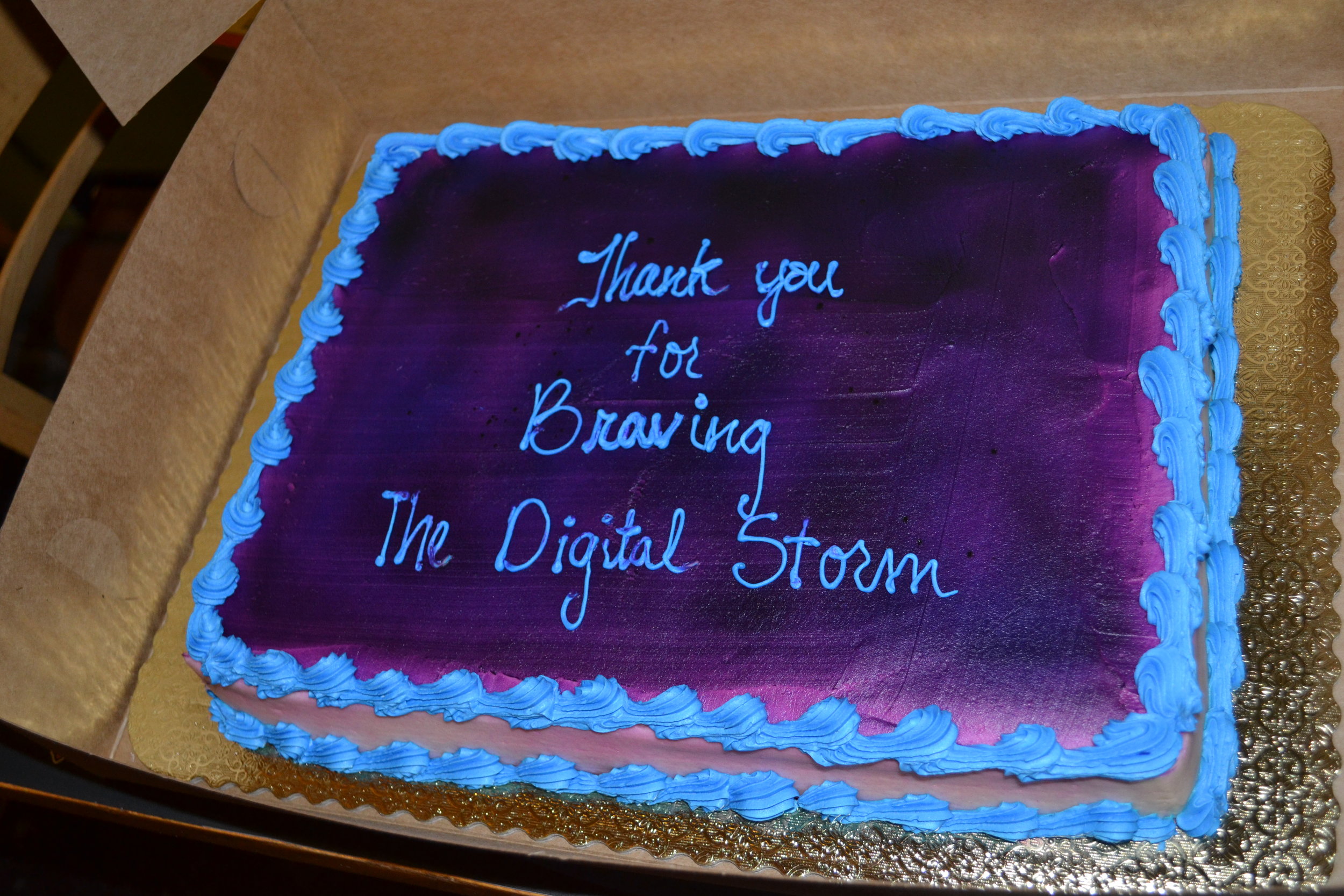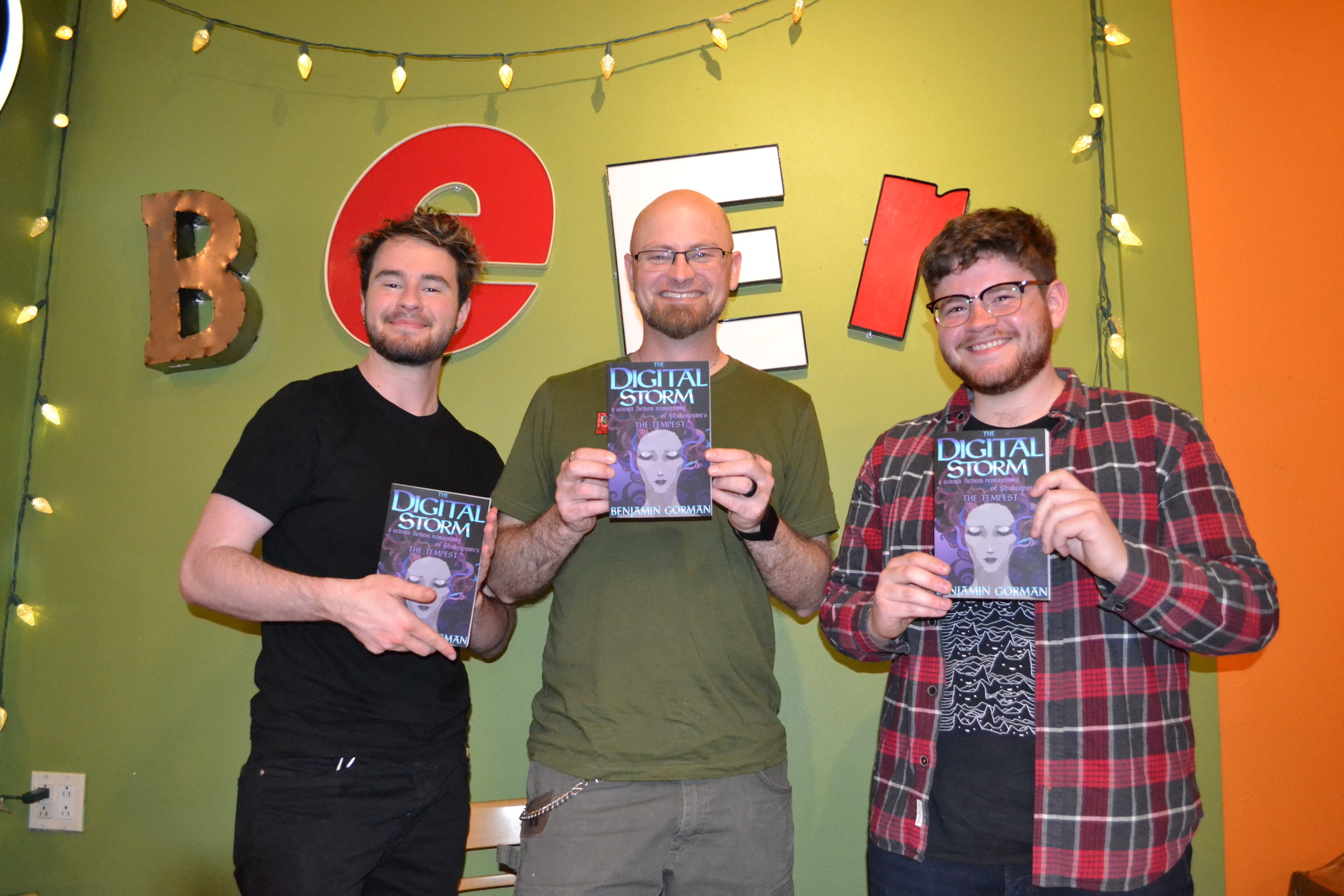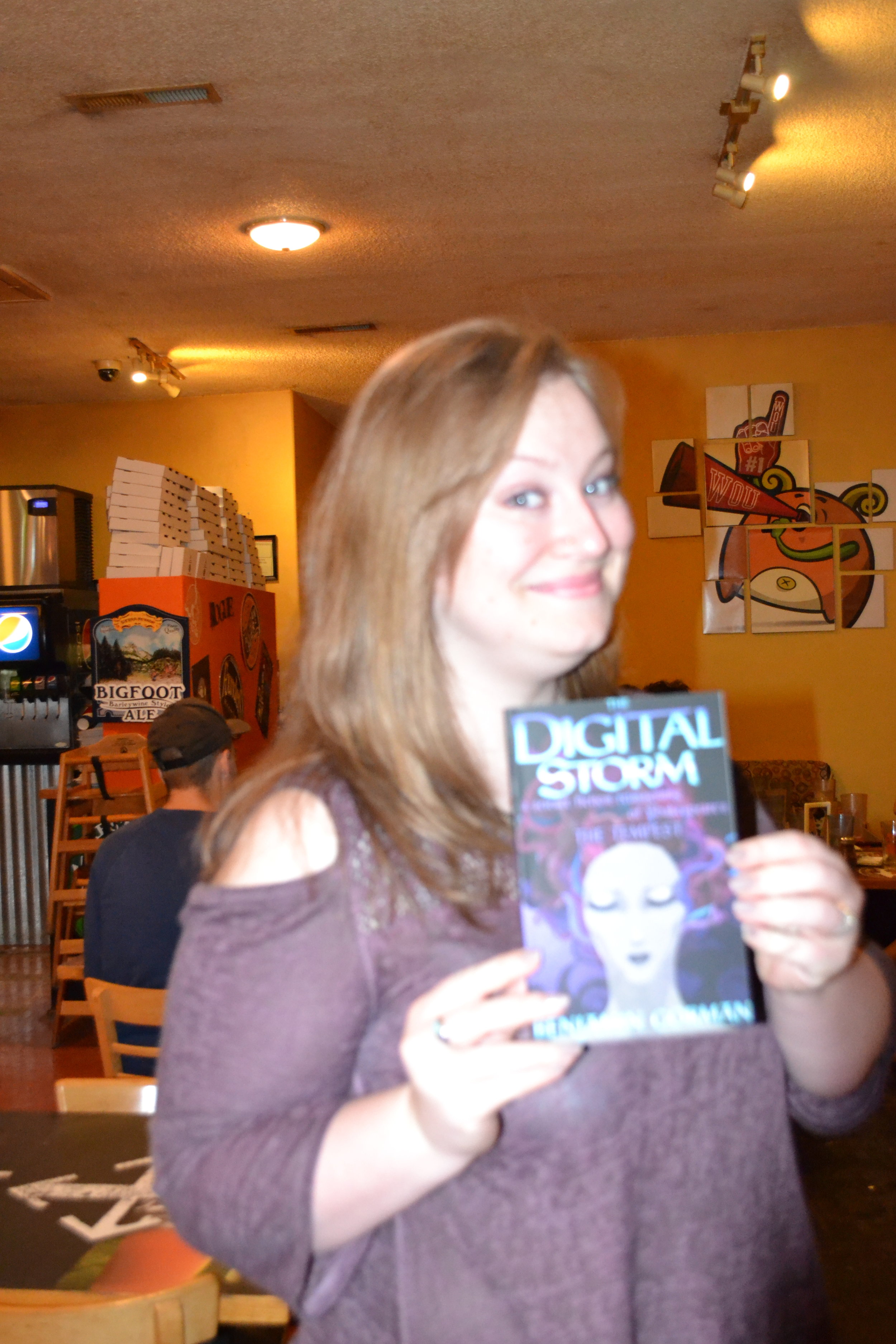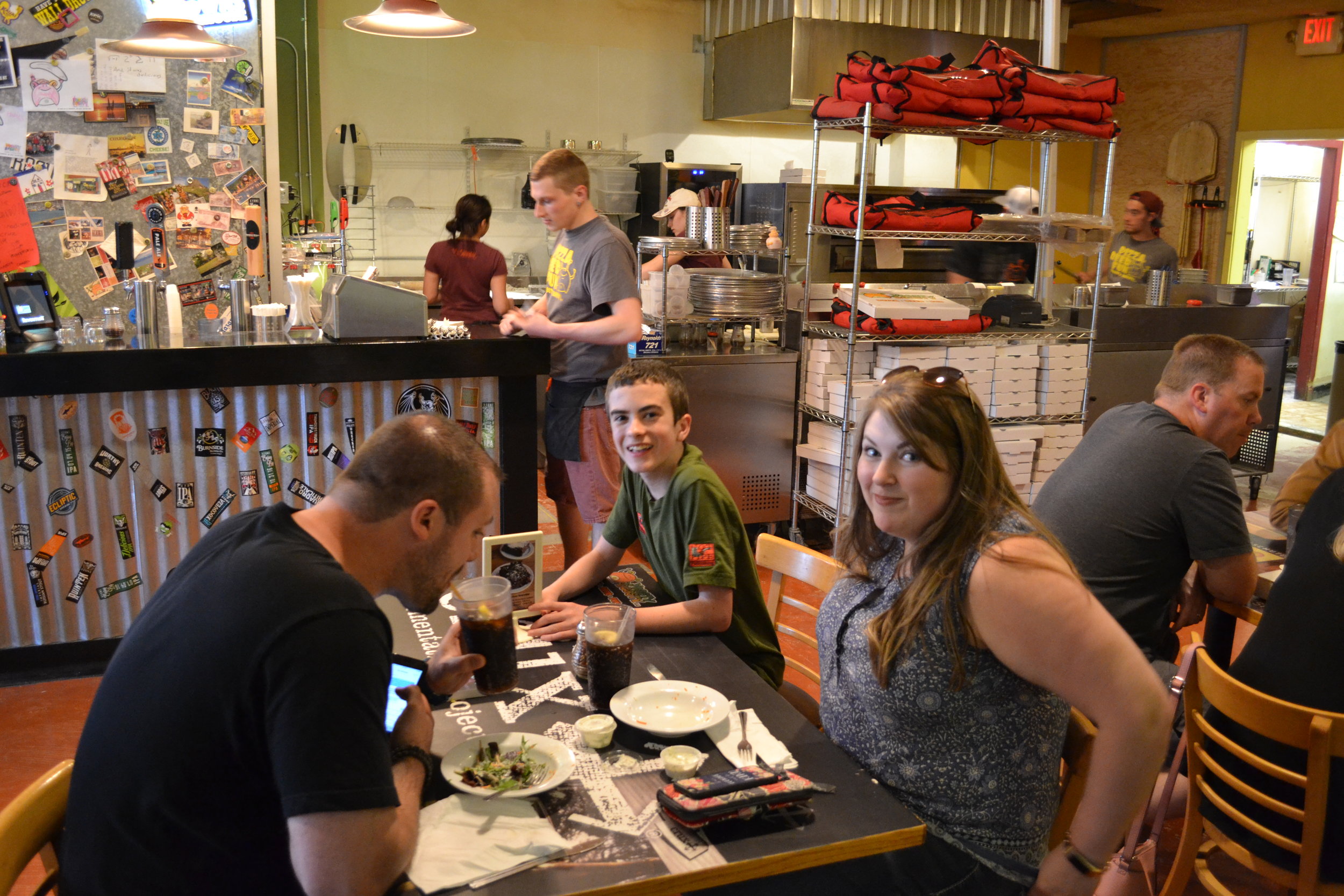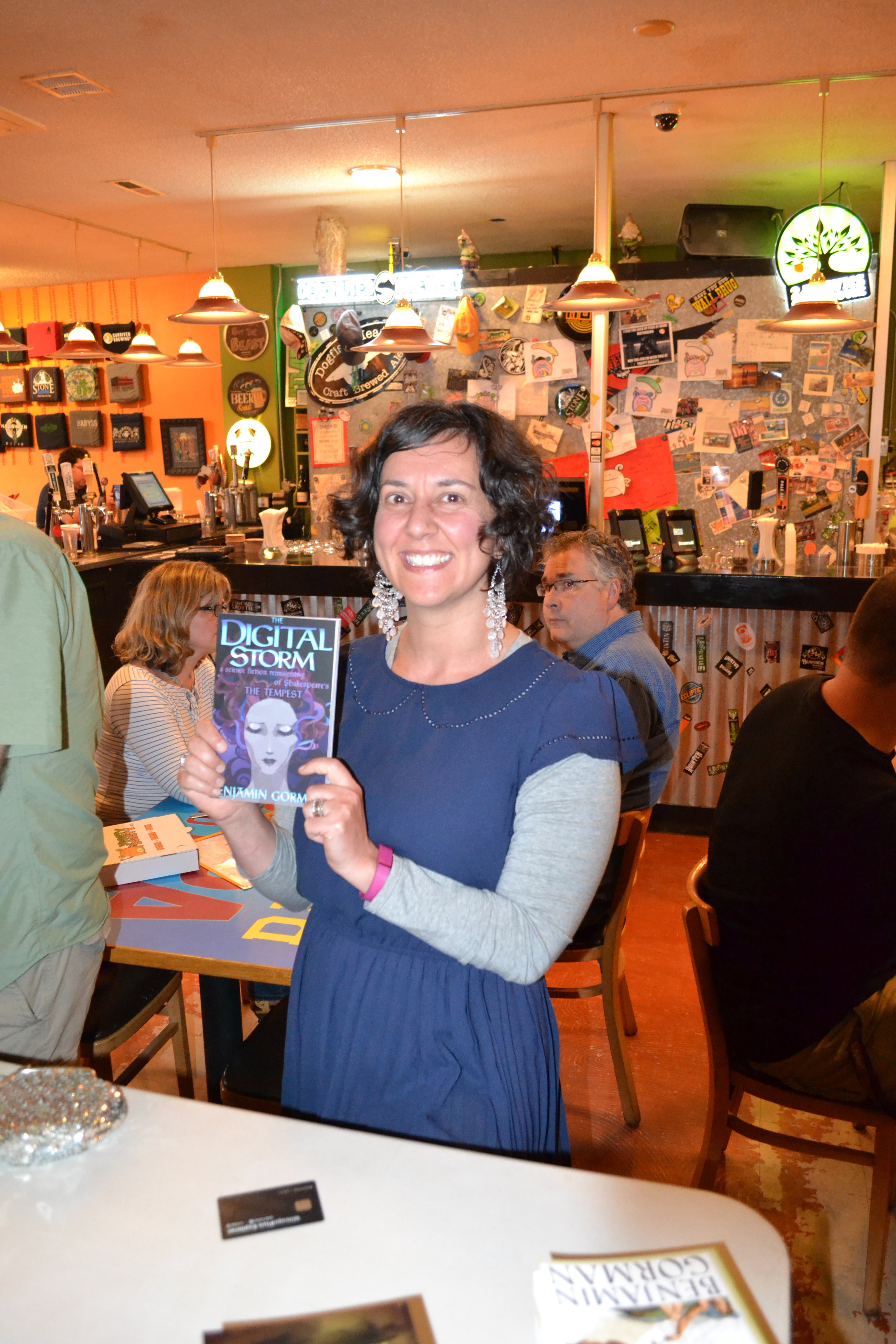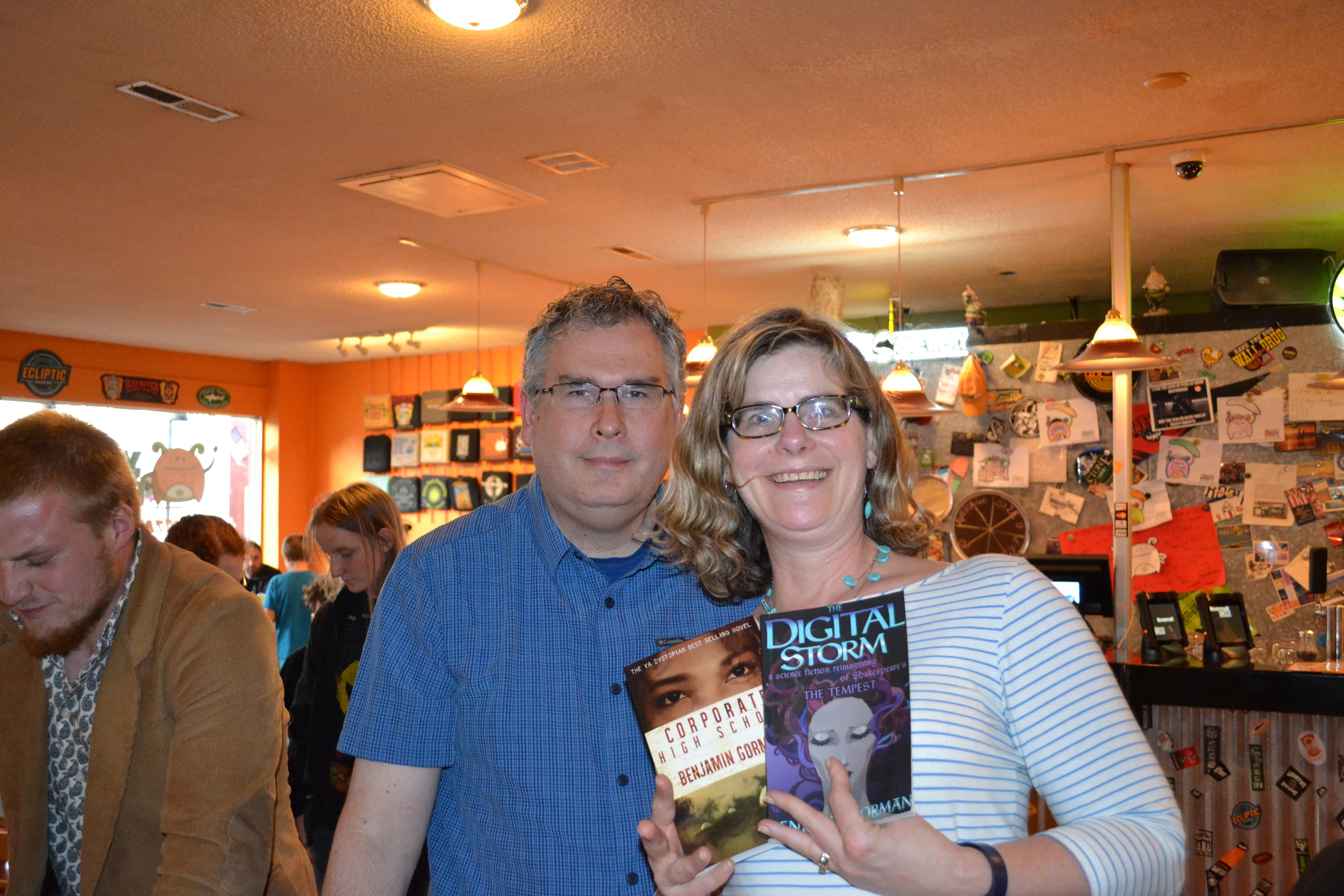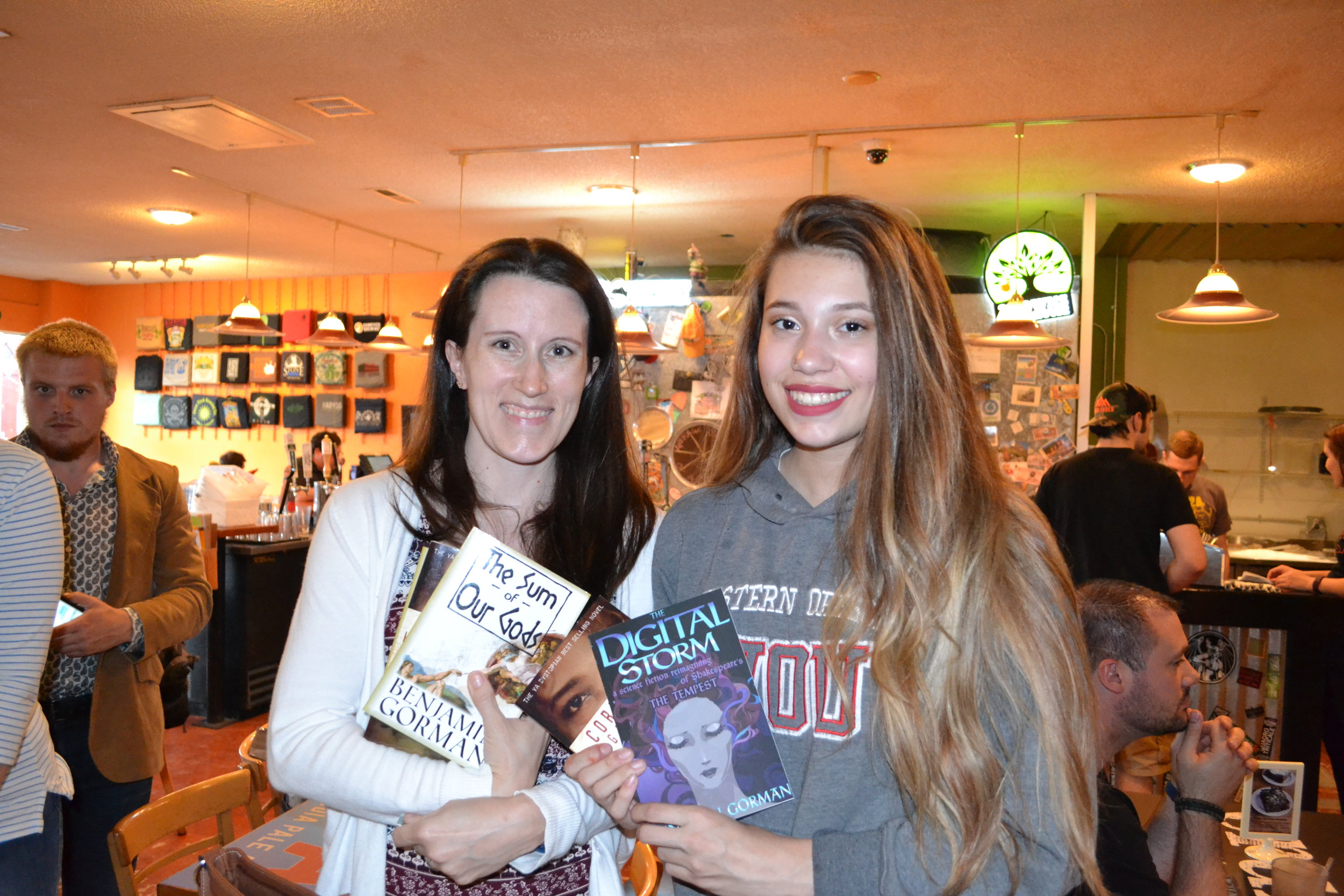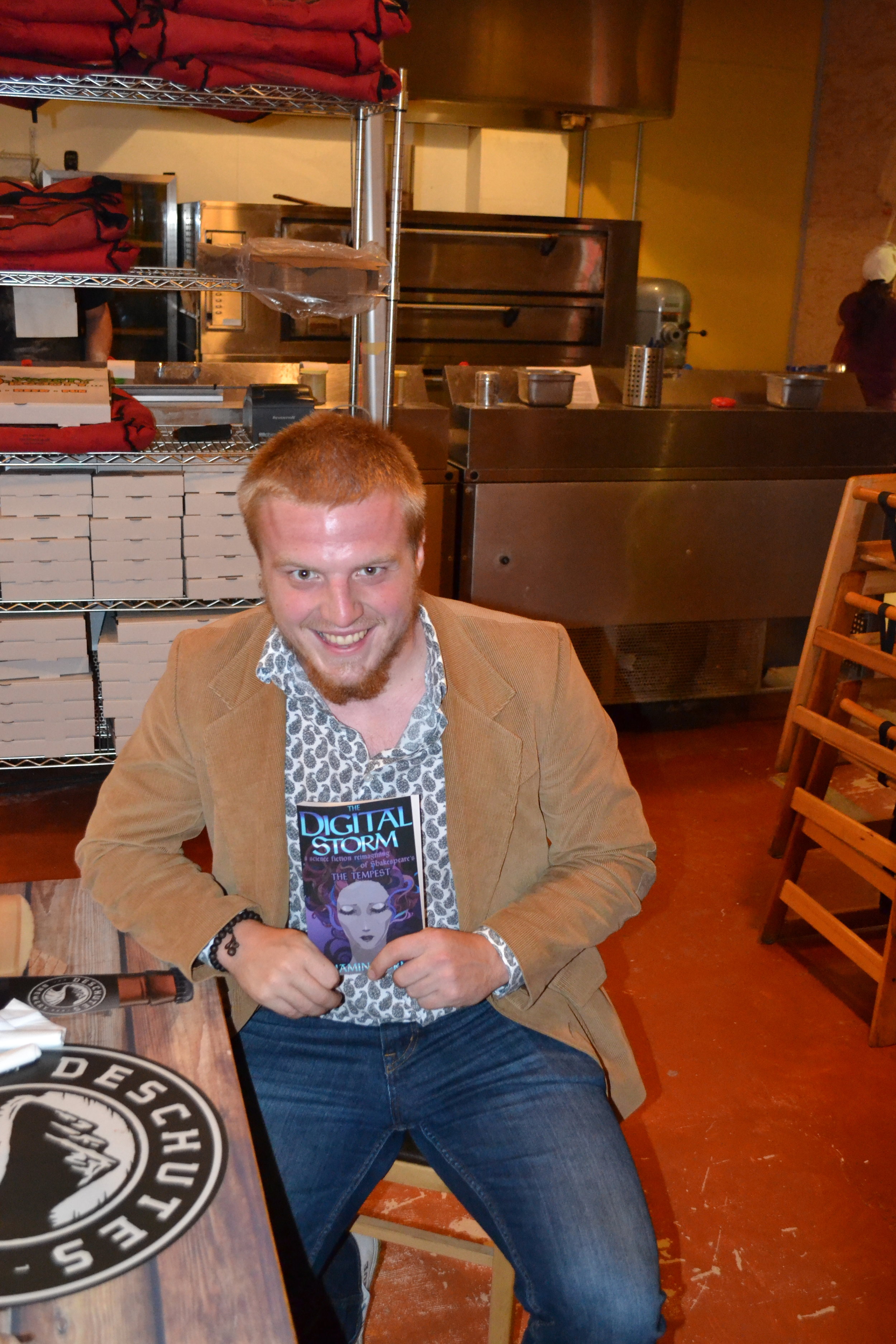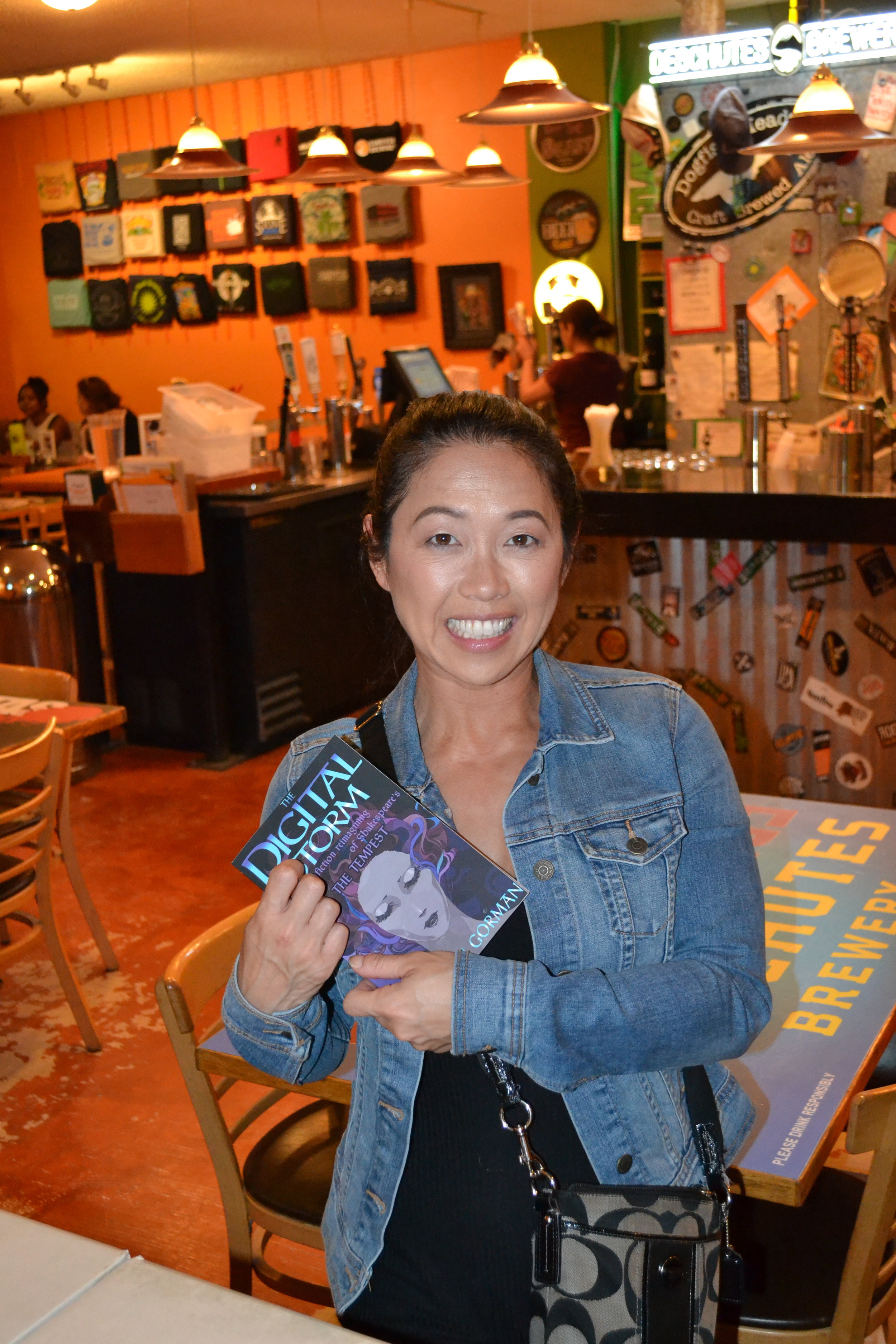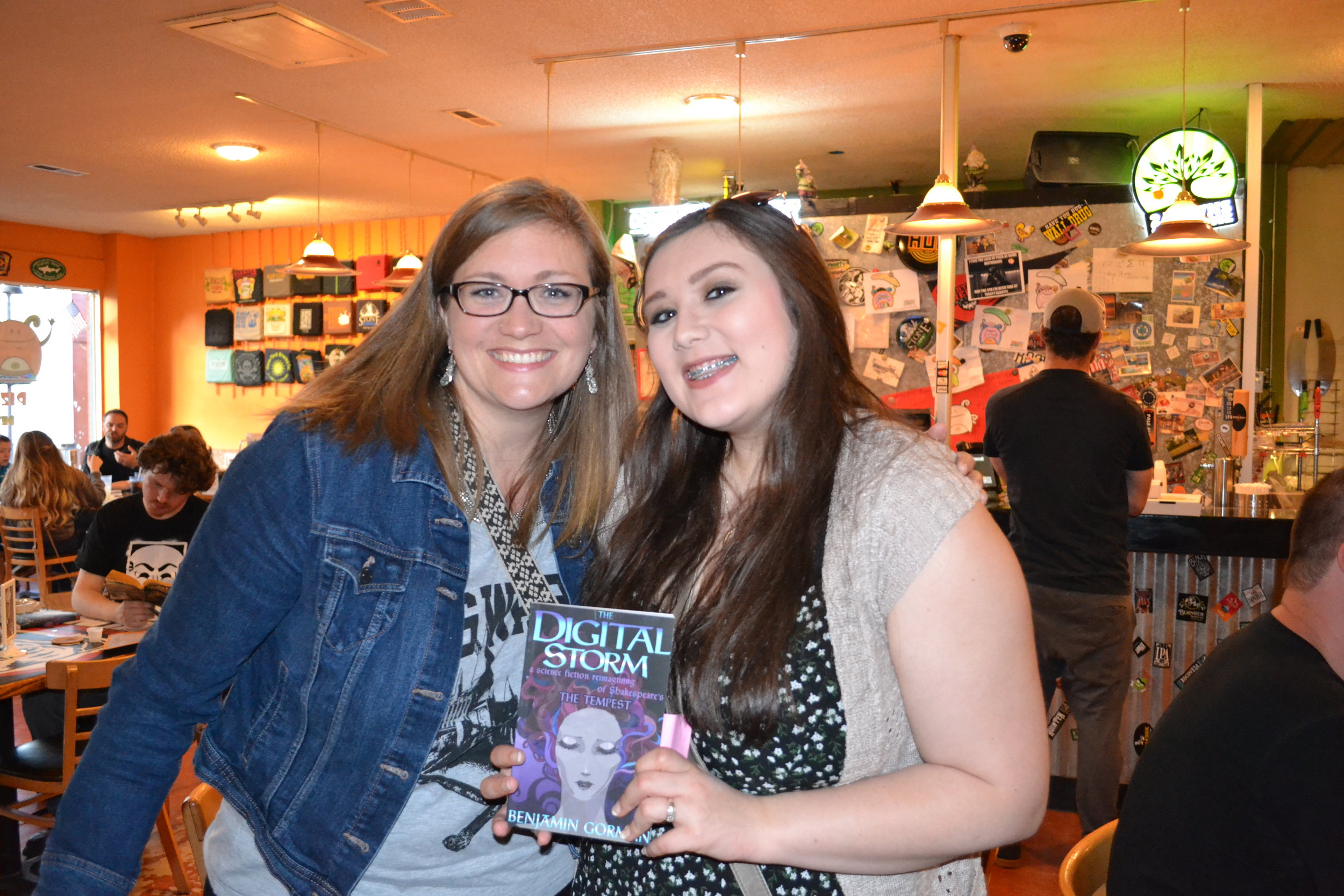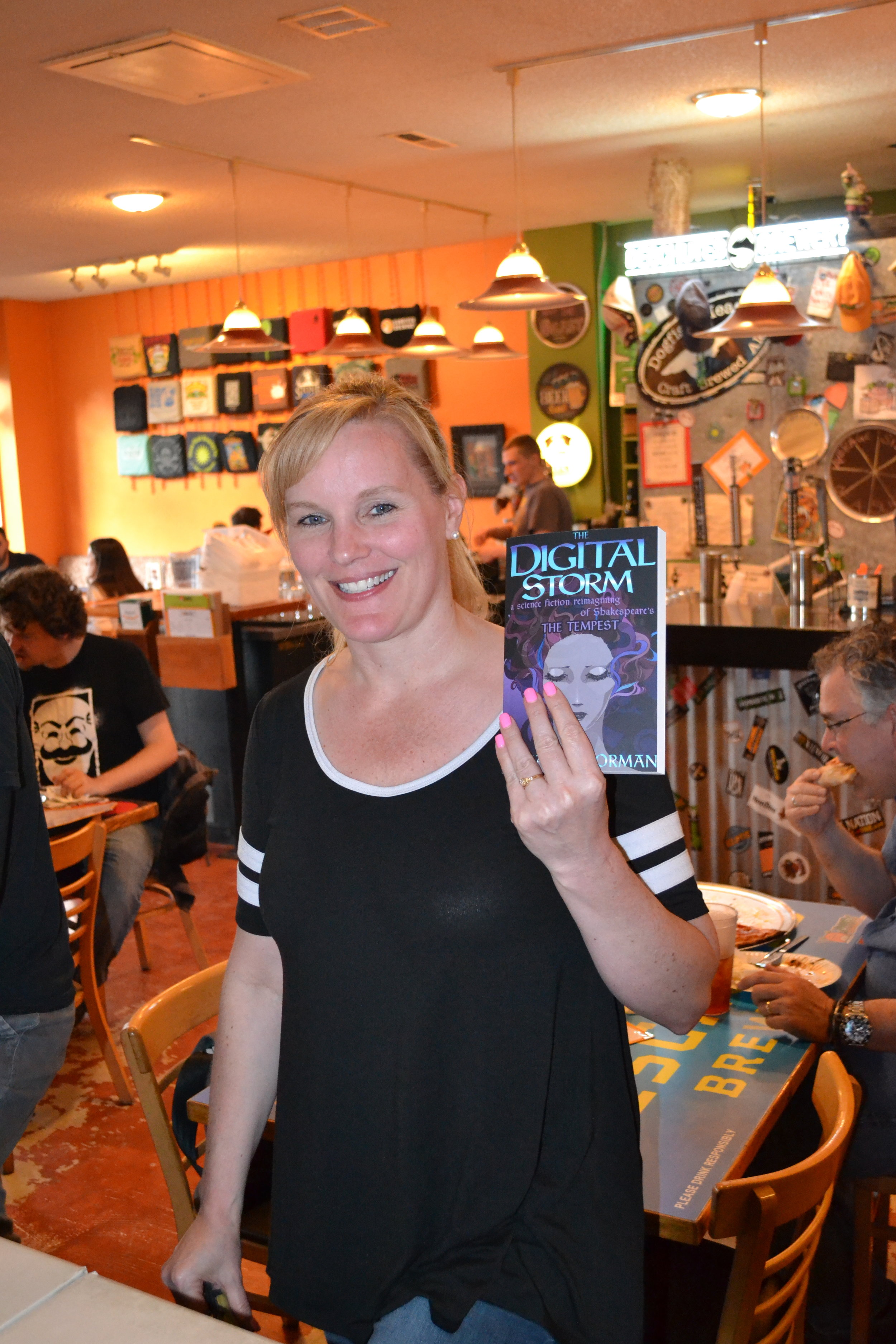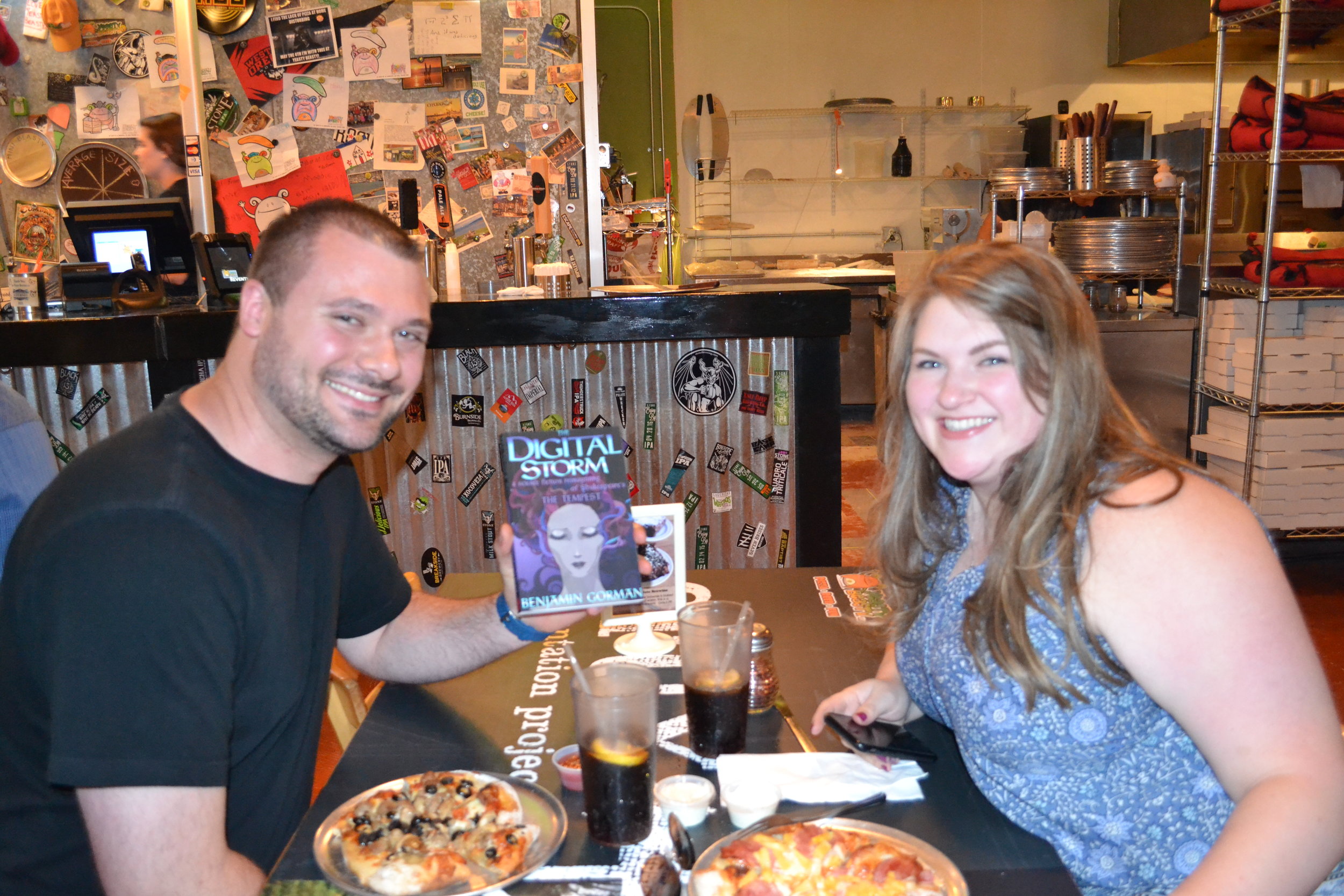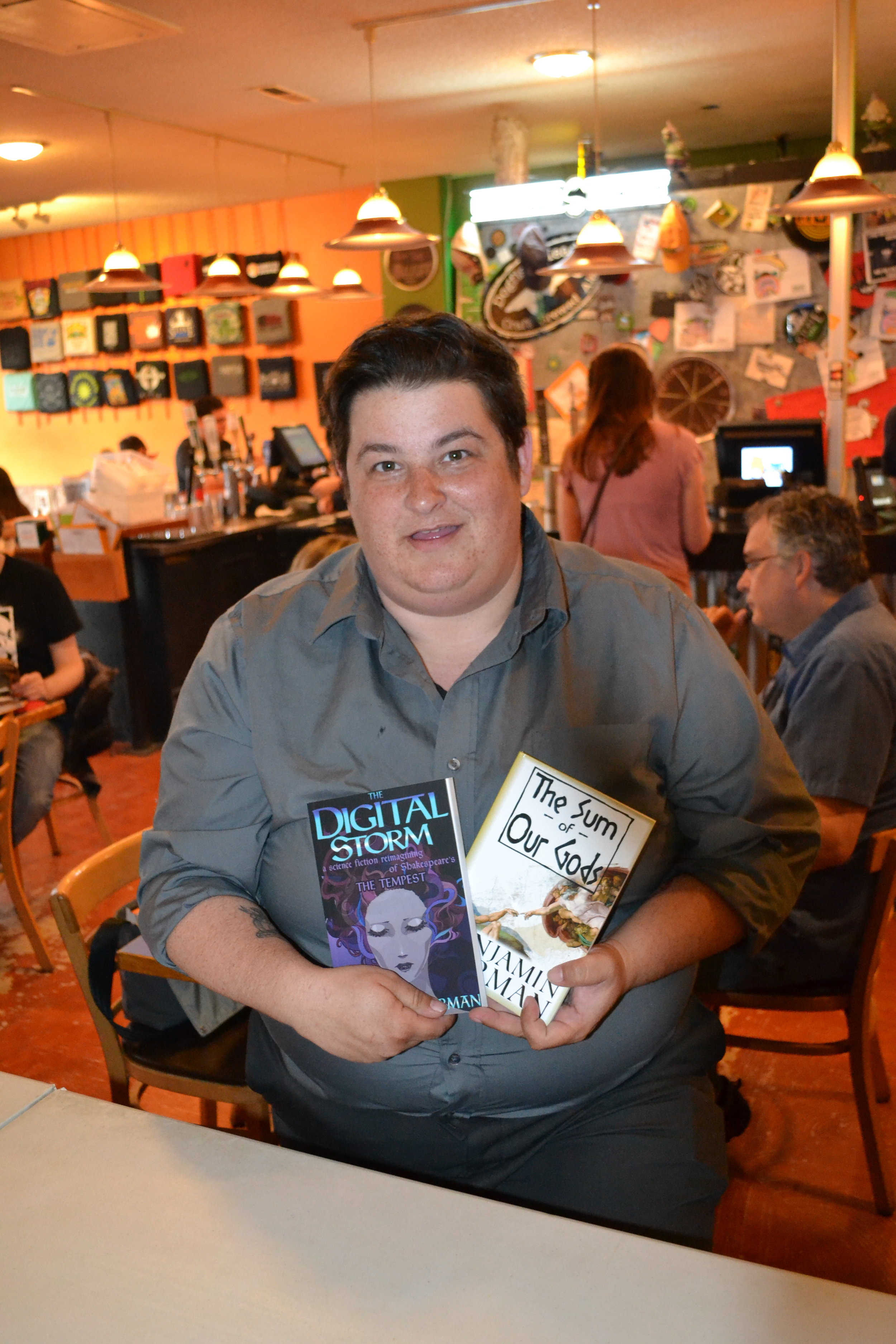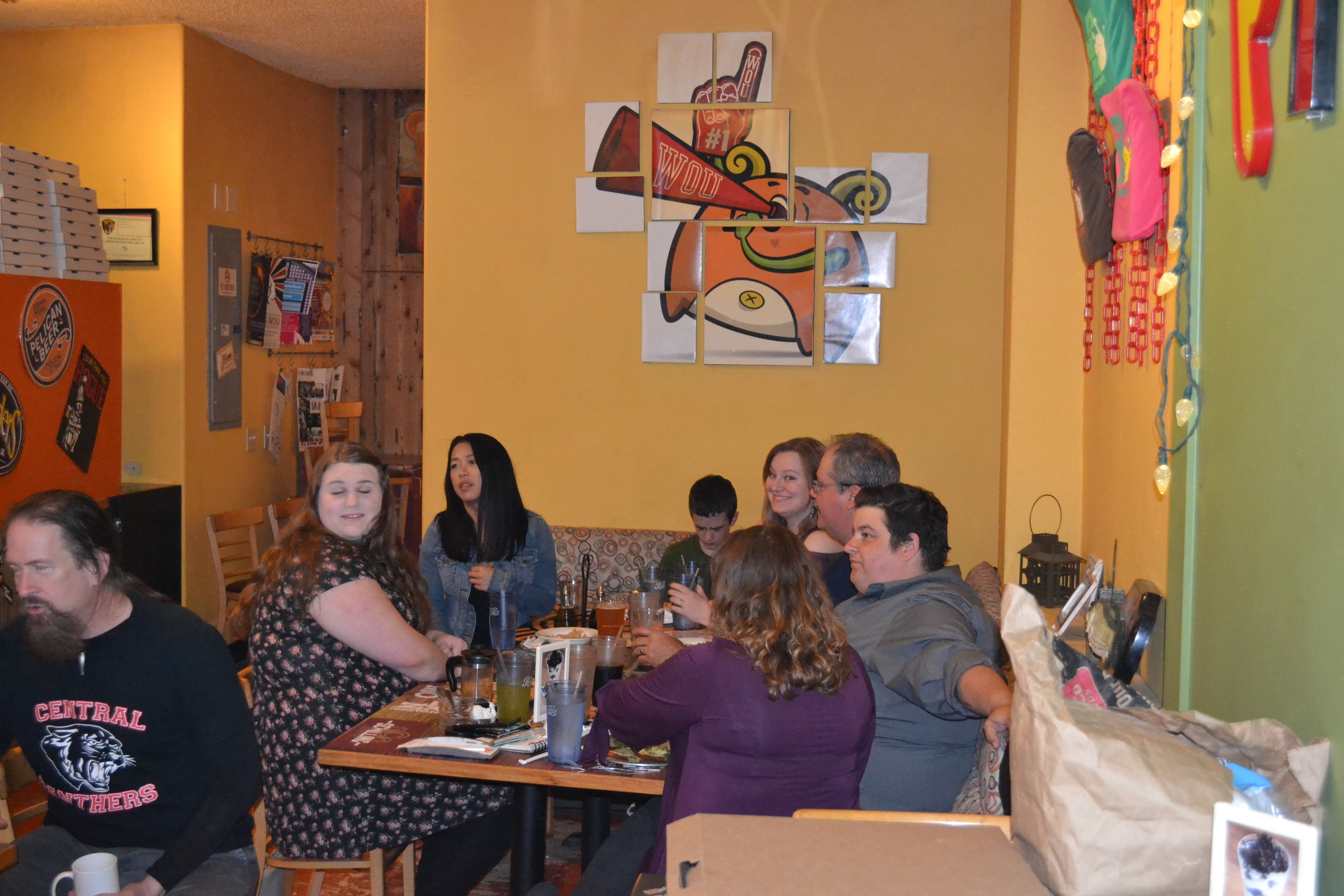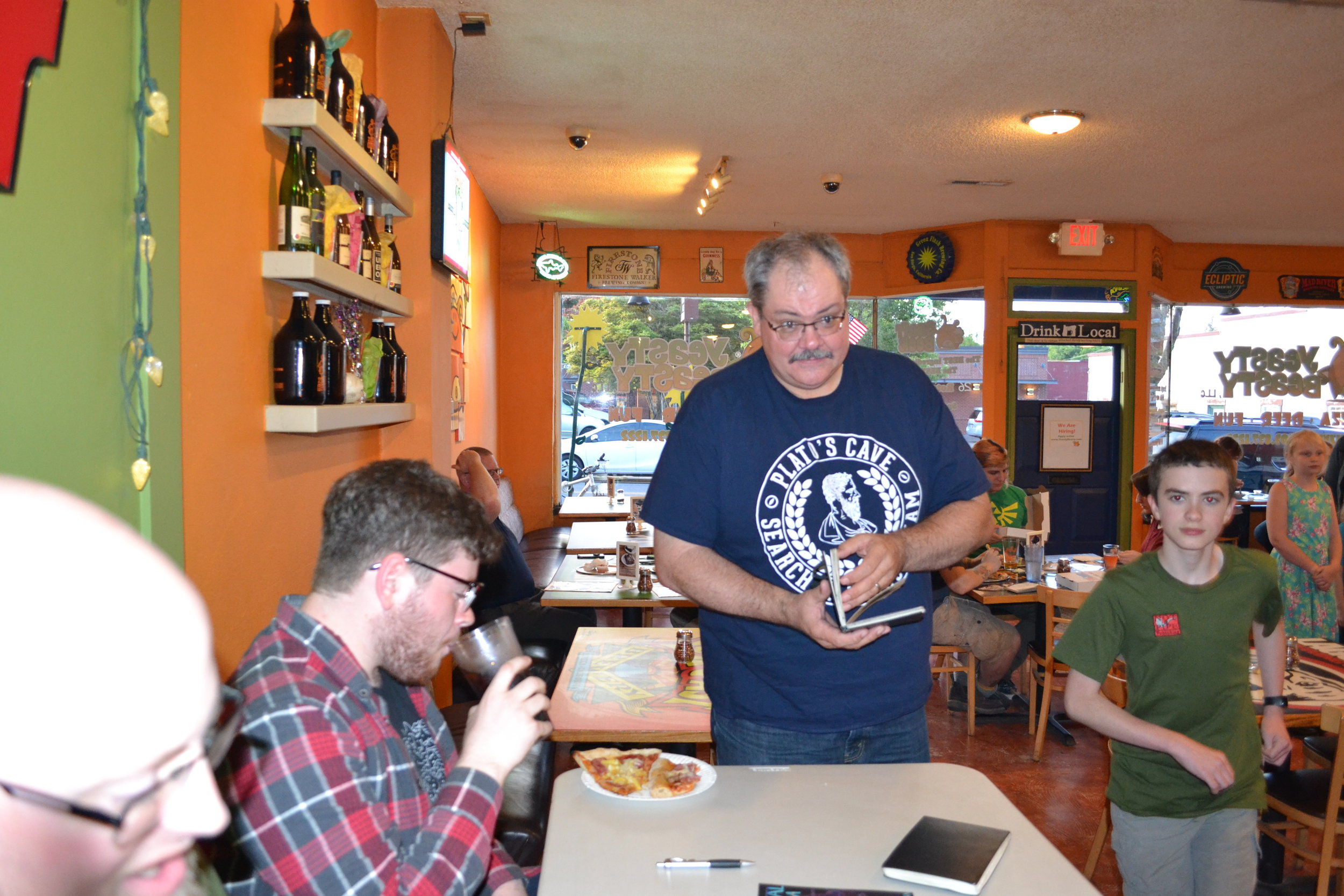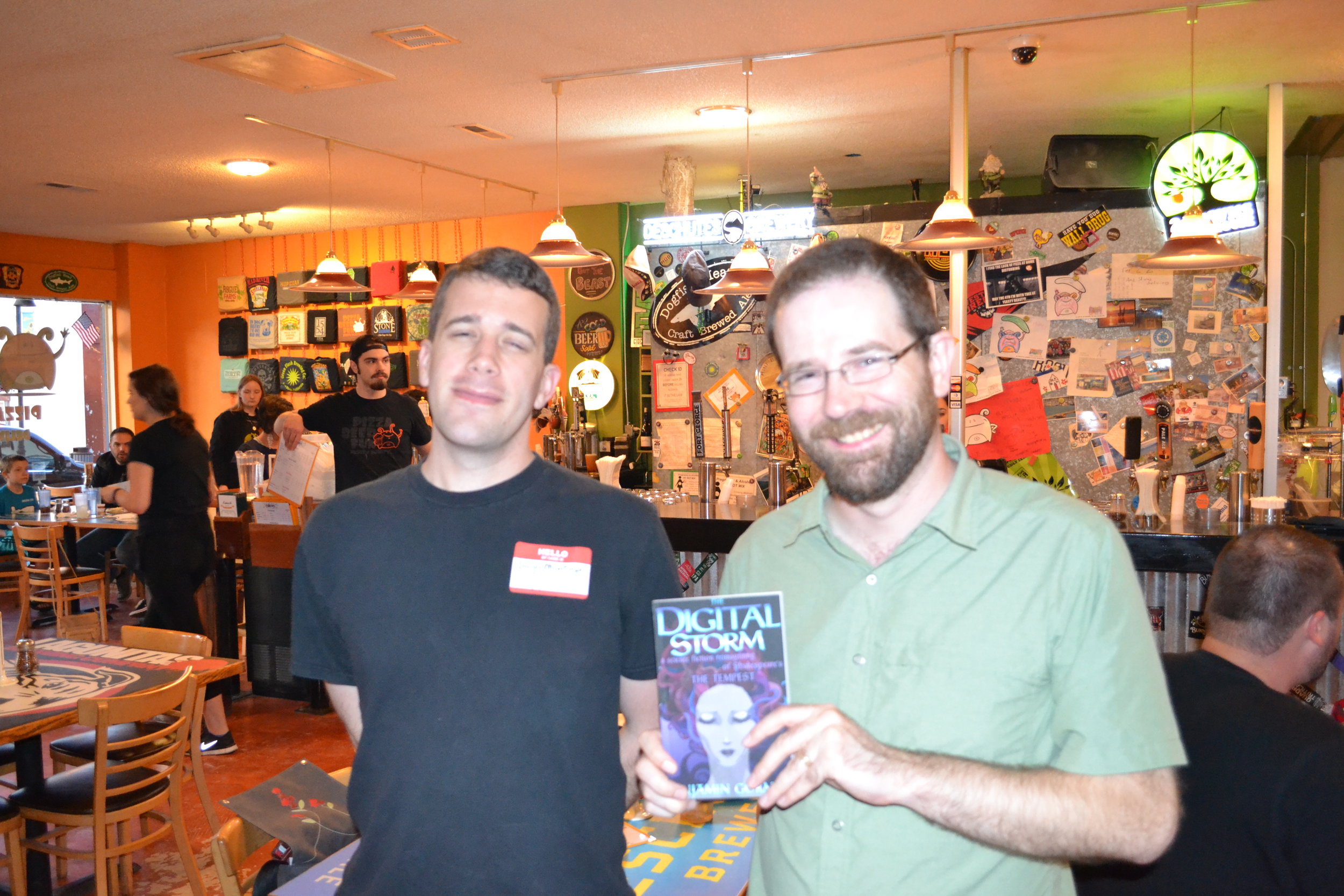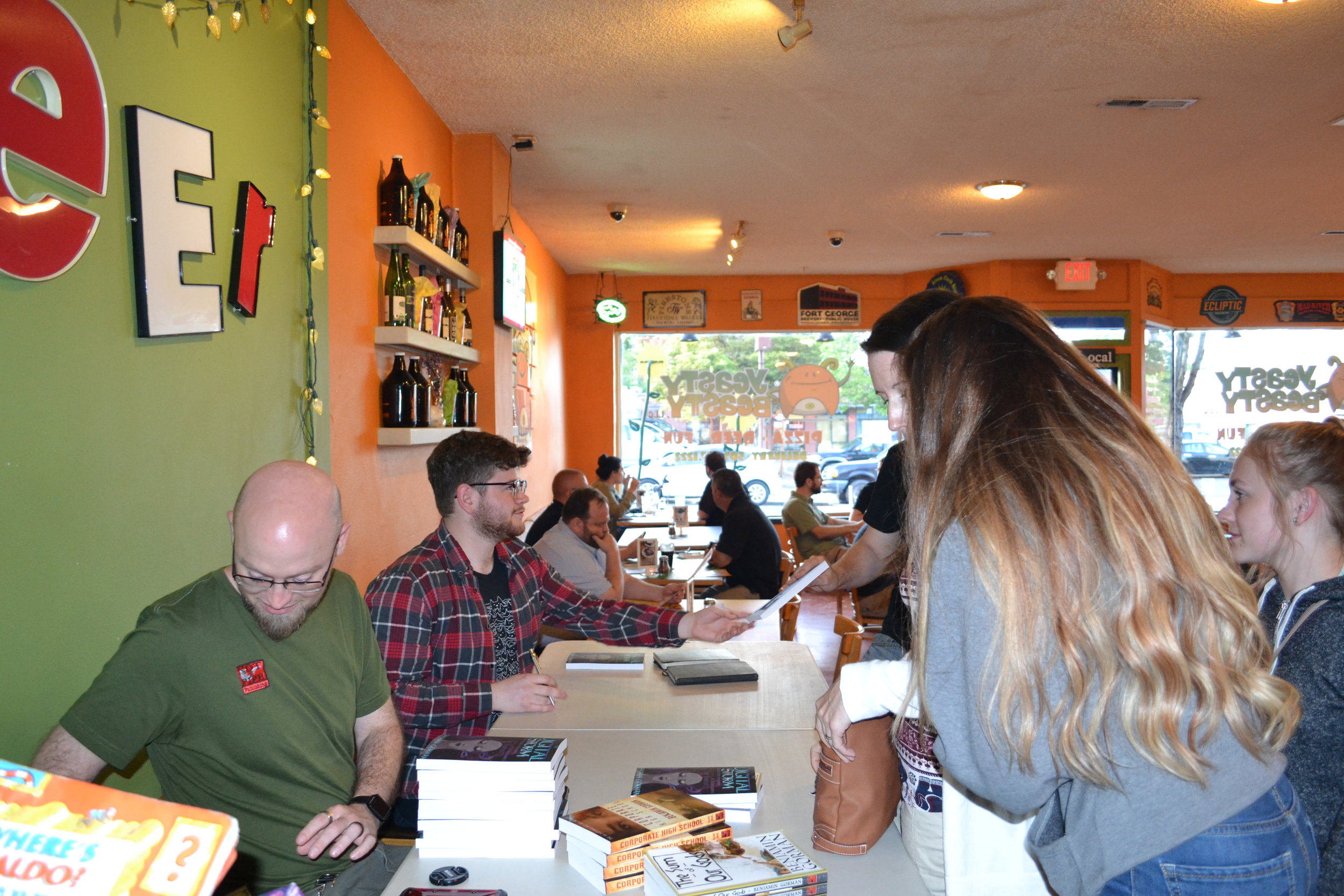You're probably a much better person than I am. When the video of Richard Spencer, the white supremacist, being punched was released, you probably knew that was wrong and unacceptable. I was genuinely torn about it. It is wrong. But it looked soooooo right. I decided to write a story to wrestle with my conflicted feelings on the matter, and if folks share those conflicted feelings and would like more of the story of Josef the Golem, let me know below and I'll tell you the rest of his story.
The Golem who Punches Nazis for Us
Sometimes you want to punch someone in the face.
Then, hopefully, you remember that you are human. Human beings should not go around punching one another in the face. Getting punched hurts. Hurting people does not solve problems. In fact, most of the people you want to hurt are behaving terribly precisely because they are hurting, and compounding their pain may channel their general horribleness in some other direction, but it won’t really solve the underlying problem.
You remember this because you are human. So you don’t punch them. Even though it might make you feel better.
Josef had complicated feelings about punching people, too. But they were different feelings.
Because Josef wasn’t human.
* * *
Frank was 94 years old, and he had been married to Ellen for most of that time. Couples find a rhythm, and often there are little syncopated lies that form the downbeats. One of their little twin lies went like this: Frank pretended he never, ever drank alcohol of any kind. This, he claimed, was because of the abuse he’d suffered at the hands of his alcoholic father in Switzerland as a child, an abuse that had motivated him to leave the small, alpine town of his childhood and move across the world to settle in Long Island and make a nice life for himself and his wife working as an auto mechanic until his retirement. Ellen had her own little lie. She pretended she didn’t know Frank drank beer each night after she went to sleep. It was just one beer. What could a little deception possibly matter at their ages?
Ellen protected Frank from a direct confrontation with this lie each evening. This was how they’d learned to live. “Okay, Dear,” she said on that particular night, “I’m feeling a bit tired. I’m going to go to sleep.”
Frank, already dozing on the couch, was awakened just enough to respond. “Can I help you out of your chair?”
“No, no. I’m fine.” And Ellen did pull herself up, though it took some doing. She was a spry 92 year old, so she didn’t want to burden Frank, but her hip really was giving her an awful pain that evening. She knew he had his date with the secret case of beer their son brought over and hid behind some canned soup in the garage, and she didn’t want to get in the way of that with her aches and pains. She loved Frank dearly, and this was her way of showing it.
“I’ll just finish my program and come to bed, too,” Frank said. He took comfort in the fact that this was mostly true. He would open the can of beer in the garage, but he would put it in a cozy just in case Ellen woke up for some reason, and then he would drink it in the livingroom while watching Sportscenter on ESPN, a show that doesn’t feel like it ever begins or ends. When he’d finished his beer, he’d remove the can from the cozy and hide it in a bag behind the old freezer full of Ellen’s strawberry jam. No one one ever touched Ellen’s jam, but it would take on magical significance when they passed away and be doled out to the children and grandchildren to be eaten on vanilla ice cream as a way of remembering.
Frank tried to convince himself that this little bit of cloak and dagger was keeping him young. He left the TV on CNN which they watched together. He’d switch the channel once he had his beer in hand. He pulled himself up from his spot on the couch with more vigour than he’d shown all day, excited to participate in this bit of mischief. He did not like thinking about the reason he was compelled to keep the ritual, the vigil he was holding, the thing alcohol used to make him forget, back before he’d cleaned himself up and met Ellen in 1963. He wanted to forget the years between the war and going cold turkey, when he’d spent his days working his way up at over at Gary’s Automotive, and his nights drinking himself into unconsciousness while sneaking peeks out the window of his little apartment, his Ruger in his sweaty hand. Those had been bad years, the worst years, but they were long behind him now. Now the beer was just a holdover, a ceremony divorced from significance, a tradition. That’s what he told himself.
Frank quietly opened the door to the garage, stepped down to the cement slab as surreptitiously as a 94 year old can, and gently closed the door behind him. Then he shuffled across the middle of the garage, past his extensive tool collection to the shelving covered in canned food. He reached behind one of the rows of cans of tomato soup stacked two high and found one of the cans of beer. He found he was salivating slightly and licked his lips to make sure he wasn’t drooling. That was becoming more and more of a concern as he got older.
When Frank turned around and saw the thing standing in the garage behind him, he dropped the beer and froze. The can split, foam spraying in a thin geyser and propelling the can along the floor toward the washing machine, but Frank didn’t look away from the hulking shape even when beer splattered on his face and made a neat line down one side of his shirt.
Frank and the thing stood there opposite one another, positioned as though they were looking at one another. But they weren’t, technically. Frank wasn’t really looking at the creature in front of him because he was seeing a moment from seventy two years earlier.
And the creature wasn’t really looking at Frank because the creature had no eyes.
“I thought you would come earlier,” Frank said.
The creature did not reply.
“I suppose it was a long journey.” Though Frank’s accent was close enough that people outside of New York might mistake him for a Long Island native, he hit the “o” in “suppose” and the “s” in “was” just a bit harder than any of his immediate neighbors. His cover story had been close enough. Even the locals believed he was Swiss. Even Ellen did.
“Is there any way I can talk you out of this?” Frank asked.
The creature had no mouth or eyes or external ears, but it must have heard and understood him. It slowly shook its head.
Frank pressed forward anyway. He couldn’t help it. “It was a long, long time ago. When I chased that man into that attic, I was only 22 years old. Almost a child. The city was in chaos. Our lieutenant was obviously frightened. There were reports that the Soviets would arrive at any second. You can’t imagine how frightened we were…”
The golem tilted its head slightly.
“No, no, you’re right. I’m sorry. I’m sure you can understand that fear. You’ve seen it.” Frank caught himself, raising his hands, palms out, as though he felt he needed to interrupt the mouth-less monster. “Worse. You’ve seen worse. But I’m just saying we were very afraid, too. So when we were told to … but I shouldn’t tell you that I was just following orders, should I?”
The golem puffed up at the phrase “just following orders” as though it had inhaled, though that was impossible, and it leaned forward, even more menacing.
“No, I’m sorry. I’m sorry I was there at all. In that cursed city. In that synagogue. In that attic. I know I should have died right there. And I knew that you would come for me. I couldn’t understand what the old man said in his language. Was that Yiddish?”
The golem shook his head.
“Hebrew?”
The golem nodded.
Frank looked down at the ground, but he wasn’t contrite exactly. Instead, he was temporarily displaced. He was finding his way back into the gloom of that attic atop the Old New Synagogue in Prague, 72 years earlier. “Yes, I couldn’t understand it, and I thought he was looking at me and pointing at me because … you know, because I was coming through the attic to finish the job. But then you stood up and I knew he’d been talking about me.” Suddenly his head snapped up, and he was back in his own garage, looking into the featureless face of the thing before him. “And I ran from you even though I knew it didn’t matter. Isn’t that strange, how the mind works with the body most of the time, but sometimes they stop communicating? I knew I would be caught. I knew I would be killed. But I ran anyway. You probably don’t know this, but I didn’t return to my company and retreat with them even though they left the city the very next day. I left right away. Did you know that?”
The golem nodded again.
“I ran and ran. By horse and buggy in France once, but I was still running. By boat with refugees to New Foundland. Then a job on a fishing boat, but still running. Then the drinking, but that was still running, really. Then the job here. And this life. This life.” He was catching up to the present, and it reminded him of his speech. “I have done many good things with my life. I was on the local school board. I was in Rotary and raised money to send school children around the world. I got involved in my church, even though I wasn’t a Catholic as a child. We were Lutherans, but I pretended when I got here. I even confessed that to the priest once and I think he was amused that I felt so guilty about that particular lie. I did not tell him about Prague, though. Or the other places before that. I certainly never told anyone about you. But you’ve motivated me to do a lot of good things with this new life. Doesn’t that mean anything to you?”
To Frank’s surprise, the golem nodded.
“It does? So you’ll forgive me?”
The golem shook his head.
Frank’s shoulders slumped. “It means something. But not enough. I agree. But if it means anything, will you please do one thing for me? One favor?”
The golem did not move at all.
“Will you let Ellen live? She doesn’t know anything about my time in the Wehrmacht. She doesn’t know that my real name was Franz. She only knows the man I’ve tried to become, not the man I was. If I do not cry out, she’ll sleep right through it. Will you leave her alone?”
The golem said nothing.
In the silence that followed, Frank transformed. He stood a little straighter. His face became flushed. He was Franz. He began to mutter curses at the golem in German. He cursed the rabbi he’d killed. He cursed all the Jews for ruining his life, for ruining Germany. His voice grew louder. He cursed the Soviets, with their inferior Cossack blood, for betraying the Reich, and the British, with their pure blood, for betraying their Germanic ancestry, and the Americans, with their inferior blood mixed with the blood of Africans, for siding with the British. And when he’d really worked himself into a lather, he pointed his right arm out and upwards, so that his fingertip almost touched the golem’s left shoulder, and he said, “Heil Hitler!”
The golem punched him.
Because of the creature’s height, Franz’ neck snapped almost as soon as the bones of his skull were smashed and shoved down his own throat. His body didn’t even know quite which injury to die from first, so everything went limp at once and he slumped to the floor.
There was very little blood. Some of the clay from the monster’s hand remained in the cavity that had been Franz’ face, absorbing it and forming a giant clot. But Franz’ heart had stopped so fast, the blood wasn’t pumped through the new opening. The little blood that stuck to the golem’s hand was absorbed into the clay. The body needed moisture. It did not care about the purity of the blood, the lineage, the human inventions of race and tribes. It preserved the body because the body was necessary to the task. Josef looked down at the broken old man and felt for some movement of its spirit. Perhaps it would hear the voice of God, it thought, or maybe a whisper from its first master, Rabbi Judah Loew ben Bezalel, telling it what to do now that this work was finished. It felt nothing and knew with complete confidence that the silence was the answer. The task was not finished.
Josef stepped over the crumpled body and made its way toward the house. It did not need to open the door. This light from the television told it that there was more than enough space to fit underneath. It slowly turned into a mass shaped like an amoeba, but surrounded by a fuzzy cloud of loose dust. As it extended a pseudopod under the door, some of the dust fell on the floor of the garage, on the back of the door, into the weave of the carpet on the other side. No one investigating Frank’s murder would ever be able to explain this dust in any satisfactory way.
Inside the house, Josef rose up until it stood in its humanoid shape. It felt for Ellen in much the same way a human hears, only its whole body was a single tympanic membrane, feeling the vibrations in the world around it, and also a single nerve sensitive to a spiritual dimension rather than a physical one. So Josef felt Ellen’s presence as a spirit in that plane and also heard her breathing in the darkness, slow and regular. She had slept through her husband’s death the sound of his last angry tirade masked by the noise coming from the television.
Josef listened to that sound now. He could not see the images on the screen; light bouncing off of molecules in the air did not disturb his universe enough to make him aware of the changes. But the television’s small speakers pushed and pulled the world around him in a way he had come to understand, and the language, though not his first or second or third or fourth, was not unknown to him.
A man’s rich baritone shifted from one story to another. “The racism and anti-Semitism of the alt-right movement were on display Saturday in Washington when its members gathered to celebrate Donald Trump's victory.
“The president of the alt-right National Policy Institute Richard Spencer's remarks were posted Sunday on YouTube by ‘Red Ice Radio,’ which describes itself as ‘covering politics and social issues from a pro-European perspective.’ The Atlantic magazine, which is recording footage of Spencer for a documentary they're working on, also published a video of the same event showing audience members apparently giving the Nazi salute.”
Now Josef heard a different voice, magnified, along with a chorus of male voices cheering. "Hail Trump! Hail our people! Hail victory!" the voice shouted.
The voice of the announcer came back. “His remarks were filled with racist imagery -- including references to ‘the black political machines’ and Latino housekeepers -- as he bashed Hillary Clinton's minority supporters.
Josef listened closely as the shouting voice returned. "Her coalition was made up of mutually hostile tribes only united out of a hatred of ‘whitey' -- that is to say, out of a hatred of us." More cheers of approval. Then Spencer’s voice again. "There are no two parts of this coalition who could ever be in the same room together for any length of time. America was, until this last generation, a white country, designed for ourselves and our posterity. It is our creation and our inheritance, and it belongs to us," Spencer said.
The announcer came back and spoke again, “The event was held at the Ronald Reagan Building on Saturday-” ...but Josef had heard enough. It lashed out at the television with the same quick ferocity it had displayed in the garage. The television sparked as it snapped in half, the pieces sliding down behind the old, wooden entertainment center.
“Frank?” Ellen called from her bed. “What was that? Are you okay?”
Josef had not made any promise regarding Ellen’s safety, but that was only because it didn’t owe Franz any mercy. It had no interest in harming Ellen more than it already had by killing Franz and destroying her television, two actions it found roughly morally equal. It took two long steps back towards the garage, slipped into its amoeba shape, slid underneath the door, then slid across the garage and around that door, out into the night. In the driveway, it could hear Ellen continuing to call for her husband by the wrong name, then her shrieking that name when she found his body. Josef recognized this expression of pain all too well, but in this case it was hardened against sympathy. It was already thinking about the next part of his task.
It did not know where he would find this Richard Spencer or the other people he’d heard applauding. It was not sure where it would find this National Policy Institute. But it was sure it would find it eventually. As Franz had suspected and then had known, if only briefly, Josef could be patient, and it was very good at finding Nazis.
It would be a long walk, but not its longest.





